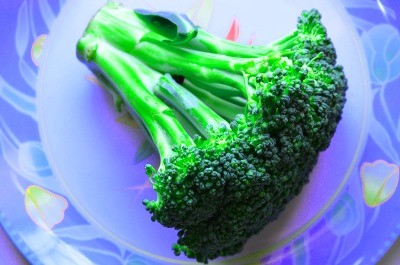
What comes after the summer diet? Right, the bulk phase for muscle building . The abdominal muscles can be hidden again and finally more eaten again. The right mass phase diet is of crucial importance if you want to build not only fat but also effectively muscle mass . Even if many achieve some success with a diet by chance, you are wasting a lot of potential if you do not deal with the basics of a good bulk diet.
This article is about these key success factors of the right diet in your bulky phase. Because ultimately your muscle building training plan and your muscle building training can still be as good. If you have not tailored your diet to you and your goals in your bulky phase, you will lag behind your potential.
So that you can get the most out of your bulking phase with as little effort as possible, I have summarized the most important points that you should know about nutrition in the bulking phase below. The article is divided into the following sections:
I recommend reading the entire article because all factors play an important role. With a click on the respective title you can also go directly to the corresponding section if you are particularly interested in something.
If you don’t want to waste time and want to be able to find out and apply the things quickly, in a compressed and structured manner, which really matter most if you want to build muscles effectively, then I recommend my book Muscle building basics .
How much do you have to eat in the bulking phase?
Let’s come straight to the very basic topic of the bulk phase. If you don’t eat enough food, you won’t be able to gain weight. Because the energy principle still applies:
If you don’t eat more than you use, you cannot gain weight.
So how much do you have to eat in order to build muscle during your bulking phase?
Now first of all you have to determine your calorie requirement. This is possible with various formulas with which you can approximately calculate your calorie requirement . Alternatively, you can also use an online calorie calculator or a good fitness tracker with heart rate measurement, such as the Garmin Vivosmart *.
You can then add up to 20% (or even easier 500 kcal) to your total daily turnover. This amount of calories serves as a starting point. If you consume this amount of calories, you should gain weight and with the right muscle building training you should also be able to gain some muscle mass.
Fine-tuning the amount in the mass phase nutrition
In any case, pay attention to how quickly you gain weight. The amount is ultimately only a guideline and it is possible that you will not gain weight because you are using more energy than expected. It is also possible that you gain a lot very quickly. That doesn’t make sense either. In this case, the percentage of built-up body fat is very high.
The solution is relatively simple: if you don’t gain weight, then eat more. If you gain more than half a kilogram per week from the third week of your bulking phase, then reduce your calorie intake. All you gain is just more body fat and you probably don’t want that.
Believe me, it doesn’t make sense if you want to gain weight even faster. Even as a beginner, you can build up a maximum of one kilogram of muscle mass per month. I know you would prefer the muscle building duration to be shorter … but muscle building takes time. As the years go by, that becomes even less. The rest that you gain is water and mostly fat.
What you should eat in your bulking phase
Now that you know how much you should eat if you want to make optimal progress in your bulking phase, let’s take a closer look at what exactly you should be eating. After all, it’s not all about the amount.
In the following I will go into the different macronutrients. I will discuss in each case what useful guidelines are for the composition of your diet. Then I’ll say something about micronutrients and what role fruits and vegetables should play in a bulky diet.
How much protein is a good bulking diet?
Recommendations for the right amount of protein for muscle building vary widely. While some “nutrition experts” recommend amounts below one gram per kilogram of body weight, others hear amounts above two grams.
Current research suggests a minimum amount of 1.5 grams for the greatest possible gain. However, since it is quite a long way to go before you really consume too much protein , you are not doing anything wrong with two grams per kilogram of body weight. One or the other Protein Shake can of course help you. Whey protein is the best choice, but many bodybuilders also swear by egg protein .
I use the WPC 80 Whey Protein from Supplement Union the most. It is very soluble and does not fill you up for so long, tastes great in milk and is very good value for money. You can buy the WPC 80 at Amazon * or, for a few dollars less, directly in the manufacturer’s shop *. You can use my exclusive 5% discount code Fitvolution5 for your orders there. You are guaranteed to get more discounts on the products nowhere.
Also, like many other strength athletes, swear by the way, in addition to other protein-containing foods , on lean quark as the basis of my protein supply. This is cheap, tasty, low in calories and very versatile.
How much fat should there be in the food during the bulking phase?
For many, the nice thing about the bulk phase is that they can finally (supposedly) eat unhealthy foods again. But even if burgers, pizza and Co. are not forbidden in the bulk phase, they are still not a good nutritional basis for your bulk phase diet in bulk.
Fats should make up about 25% of the calories and at least 1 gram per kilogram of body weight in your diet. Less than 1 gram can have a negative impact on your hormone production. But especially when it comes to fat, it is not just a question of the quantity, but also that you consume the right fats. It is particularly important that you consume enough Omega 3 fatty acids . After all, you don’t want to suffer from a (widespread) Omega 3 deficiency . Unfortunately, these essential fatty acids are not really contained in burgers and the like. 😉
Always think about your calorie intake, especially when it comes to fat and fast food. After all, you don’t want to gain weight from too much fat.
And what about the carbohydrates in the bulking phase?
You often hear that the carbohydrates are very important in the bulking phase. That’s right, after all, carbohydrates are an important source of energy for the muscles. They give you the power you need to build muscles in your training.
How much carbohydrates is a good amount for you depends a lot on how well you get on with them. A minimum amount in the mass phase of around two grams per kilogram of body weight is recommended in order to replenish the energy reserves used after training and to slow down catabolic processes.
Above all, the question is how many calories you still have open and how well you can cope with larger amounts of carbohydrates. Personally, I always feel tired and bloated quickly with large amounts of carbohydrates. This is not necessarily beneficial for my motivation and my training performance.
I also advise against overdoing it with sugar, even in the bulking phase, and instead relying on complex carbohydrates such as potatoes and oatmeal.
And what about the micronutrients in the bulking phase?
Even the micronutrients shouldn’t be neglected in your bulking phase. Although they are not used to generate energy, they play an important role in all possible processes in your body. Incidentally, this also includes all kinds of movements, regeneration processes and also building up muscles. So you shouldn’t neglect the micronutrients in your bulky diet.
I don’t want to bore you with the individual micronutrients and reasonable amounts. It doesn’t really matter that you know them all and how much of them you need. In the end, it is only crucial that you have enough fruit and vegetables take to you. You already set the course for this when you go healthy shopping , i.e. when you go shopping for groceries, make sure to pack the right nutrients into the cart.
If you have 10 grams of vegetables and fruit per kilogram of body weight on your plate per day, then you are pretty much on the safe side when it comes to most micronutrients. Then you will be able to save the money for most supplements . If this is still difficult for you, you can buy a kind of micronutrient insurance with a Greens Shake, for example from Athletic Greens * (link to the introductory offer for my readers with 60-day money back Guarantee). This does not replace the vegetables, but it can at least partially compensate for them if you cannot eat enough greens in a day.

Green vegetables, like broccoli, should always land on your plate.
How often should you eat something during the bulking phase?
Sometimes you hear and read such absurd things as that you have to eat at least 6 meals a day if you want to build muscle mass successfully. Don’t worry, this is not right.
It doesn’t matter how many meals you split your nutrients into. As long as the amount and composition are correct, your body does not care how much time there is between meals. Contrary to all rumors, your body is anything but wasteful and just throws very little unused food away.
Still, there are good reasons why you should spread your bulk meals throughout the day. Probably the most important is that it is not easy for many to eat such large amounts at once. Another reason is that many people get hungry if meals are long apart, no matter how much they have eaten.
It can also make sense to eat at certain times. I want to go into this in the next section.
When is the best time to eat something during the bulking phase?
Yes, the timing of eating really makes a difference in building muscle. This is not as big as the amount and composition of the food and not as important as was previously thought. Nevertheless, nutrition timing, as they say in modern German, does play a role in building your muscles.
From this point of view, three things are recommended:
- Eat a decent meal 2-4 hours before training so that you have enough energy during training to perform well.
- Consume carbohydrates and proteins within 1-2 hours after the workout to quickly replenish your memory and initiate regeneration. A whey protein with short-chain carbohydrates is very suitable here. However, the shake immediately after training is not mandatory.
- Have a large meal with lots of protein and long-chain carbohydrates 2-3 hours after your workout to promote long-term regeneration and thus muscle building.
If you are particularly interested in this topic, I have also written an article about whether you should eat before or after training.
Which nutritional supplements make sense in the bulk phase of nutrition?
If you have now learned and internalized all the rules of a good bulk diet, you may be wondering how you can get a little more out of it. The voices for nutritional supplements are often loud here. I find that quite understandable.
If you adhere to all of the above recommendations, however, you will make very good progress without any muscle building supplements . Such food supplements can then mainly serve to compensate for a poorer diet or to provide minimal support to get a little more out of it. However, they are really not necessary.
However, if you want to do a little fine-tuning, then I definitely want to recommend two supplements that I take regularly myself. Creatine monohydrate and beta alanine cannot be obtained in effective quantities through a regular diet and are completely harmless if taken correctly, yet proven to be effective.
Your conclusion on the mass phase diet
As you can see, there are a few things to keep in mind when eating in the bulking phase. Simply eating as much as possible does not make sense and simply eating something is not the right strategy. However, it is not rocket science to support your muscle building with a good diet in your bulking phase.
If you stick to a few simple rules, you will be able to get a lot more out of your bulking phase than most of the others.
Just make sure you eat enough and not too much so that you gain weight but don’t do it too quickly either. If you now consume enough protein, high-quality fats and (above all) carbohydrates before and after your workout, half the rent is already paid. If there are still enough fruit and vegetables on your menu, you are doing a lot right with your diet.
If you don’t want to waste time building muscle, I would like to take this opportunity to recommend my book Muscle Building Basics . This is the first real “no bullshit” guide for effective muscle building. It contains, prepared in a structured manner, everything you really need to get your muscles to grow reliably in the least possible time. Optionally, you can receive additional guides, training plans and even personal support from me.
